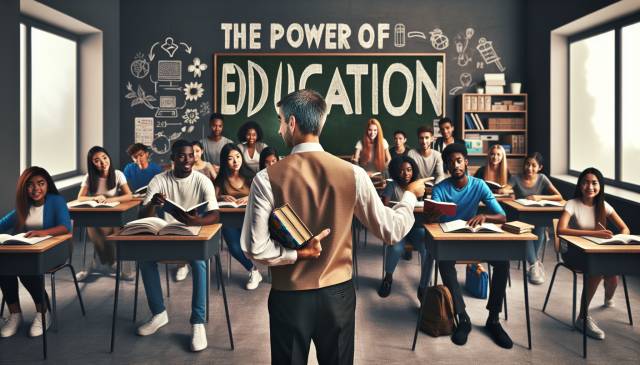
Education has long been hailed as a cornerstone of social mobility, offering individuals the opportunity to improve their circumstances and break free from the cycles of poverty and inequality. As we dive into the role education plays in shaping social mobility, we must recognize its potential to empower individuals, uplift communities, and create a more equitable society.
Understanding Social Mobility
Social mobility refers to the ability of individuals or families to move up or down the social ladder, typically measured by changes in income, education, and occupation. It is a crucial aspect of a fair society, where everyone should have the opportunity to succeed regardless of their background. Unfortunately, many barriers exist that hinder social mobility, including socioeconomic status, race, and geographic location.
The Role of Education
Education serves as one of the most significant equalizers in society. Here are some key ways in which education promotes social mobility:
- Skills Development: Education equips individuals with essential skills required in the workforce. Higher levels of education often correlate with better job opportunities and higher wages.
- Networking Opportunities: Schools and universities provide platforms for students to connect with peers, mentors, and industry professionals, facilitating valuable relationships that can lead to career advancements.
- Access to Resources: Educational institutions often provide access to resources such as counseling, internships, and scholarships, which can help students navigate their career paths effectively.
- Increasing Awareness: Education broadens individuals' perspectives, increasing their awareness of societal issues and encouraging them to advocate for change within their communities.
Barriers to Educational Access
Despite the clear benefits of education for social mobility, numerous barriers continue to obstruct access for many individuals:
- Financial Constraints: The high cost of tuition and associated expenses often deter individuals from low-income backgrounds from pursuing higher education.
- Geographic Disparities: Educational opportunities can vary significantly based on location, with rural areas often lacking access to quality schools or advanced courses.
- Systemic Inequalities: Racial and socioeconomic disparities can result in unequal educational opportunities, affecting the quality of education and support received by students.
Bridging the Gap
To enhance social mobility through education, it is imperative to address these barriers and create a more inclusive educational system. Here are some strategies that can help bridge the gap:
- Policy Reform: Governments should prioritize educational funding and implement policies that ensure equitable access to quality education for all students.
- Community Programs: Local organizations can offer mentorship, tutoring, and financial aid to students in underserved communities, helping them to access educational opportunities.
- Online Learning: With the rise of online courses and programs, learners from all backgrounds can access quality education from prestigious institutions, breaking down geographical barriers.
The Impact of Lifelong Learning
Education does not end with formal schooling; lifelong learning is essential in todayâs rapidly changing world. Continuous education helps individuals adapt to new industries and technologies, ensuring they remain competitive in the job market. Hereâs how lifelong learning can contribute to social mobility:
- Career Advancement: Professionals who pursue further education or training can enhance their skills, making them eligible for promotions and higher-paying roles.
- Entrepreneurship: Lifelong learners are often more equipped to start their own businesses, contributing to economic growth and creating job opportunities in their communities.
- Personal Growth: Ongoing education fosters a growth mindset, encouraging individuals to pursue their passions and achieve personal fulfillment.
Conclusion
Education is a powerful tool for social mobility, enabling individuals to overcome barriers and improve their lives. By investing in education and addressing the challenges that hinder access, we can create a more equitable society where everyone has the chance to succeed. As learners, it is essential to recognize the transformative potential of education and actively seek out opportunities for growth and development. Together, we can build a brighter future for ourselves and for generations to come.
